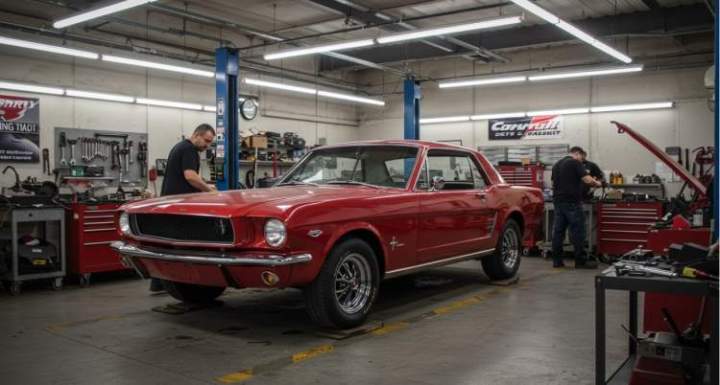How Do I Assess the Condition of a Classic Car Before Restoration?

Assessing the condition of a classic car before starting the restoration process is crucial. At Harbor Auto Restoration, we provide guidance on how to thoroughly evaluate a car for restoration potential.
Evaluate the Body and Frame
The condition of a classic car’s body and frame is one of the most important aspects to assess before restoration. Rust and structural damage are common issues in older vehicles, and these can significantly impact the overall cost and effort required for restoration. Start by examining the car's exterior, looking for signs of rust, dents, or previous poor repairs. Pay close attention to the undercarriage and wheel wells, as these areas are often the first to suffer from rust. The frame, which is the vehicle's structural foundation, should also be carefully inspected for cracks, bends, or other signs of damage.
At Harbor Auto Restoration, we recommend a detailed inspection of the frame and body to determine how much work is needed. Minor surface rust can often be repaired, but significant frame damage may require extensive work or replacement, which can escalate costs. For cars with severe rust issues or frame damage, it might not always be worth pursuing restoration, as it could compromise the vehicle's safety and longevity. Properly evaluating the condition of the body and frame will give you a clearer picture of the restoration project ahead.
Inspect the Engine and Mechanical Components
Once you’ve assessed the body and frame, it’s essential to evaluate the engine and mechanical components of the car. The engine is the heart of any vehicle, and a car that runs poorly or has engine issues may require a complete overhaul. Start by checking the engine’s compression, oil condition, and signs of leaks. Listen for unusual noises while running the engine to detect any potential problems with the internal parts. Additionally, inspect the transmission, suspension, steering, and brake systems to ensure they are in good working condition.
At Harbor Auto Restoration, we encourage a thorough mechanical inspection to identify any underlying issues that may not be immediately visible. Mechanical repairs often make up a significant portion of a restoration budget, so understanding the condition of these components upfront is critical. If the engine and other mechanical systems require extensive rebuilding or replacement, it can dramatically impact both time and costs. A well-maintained engine and functioning mechanical parts are key to a successful restoration, so make sure these areas are properly assessed before moving forward with the project.
